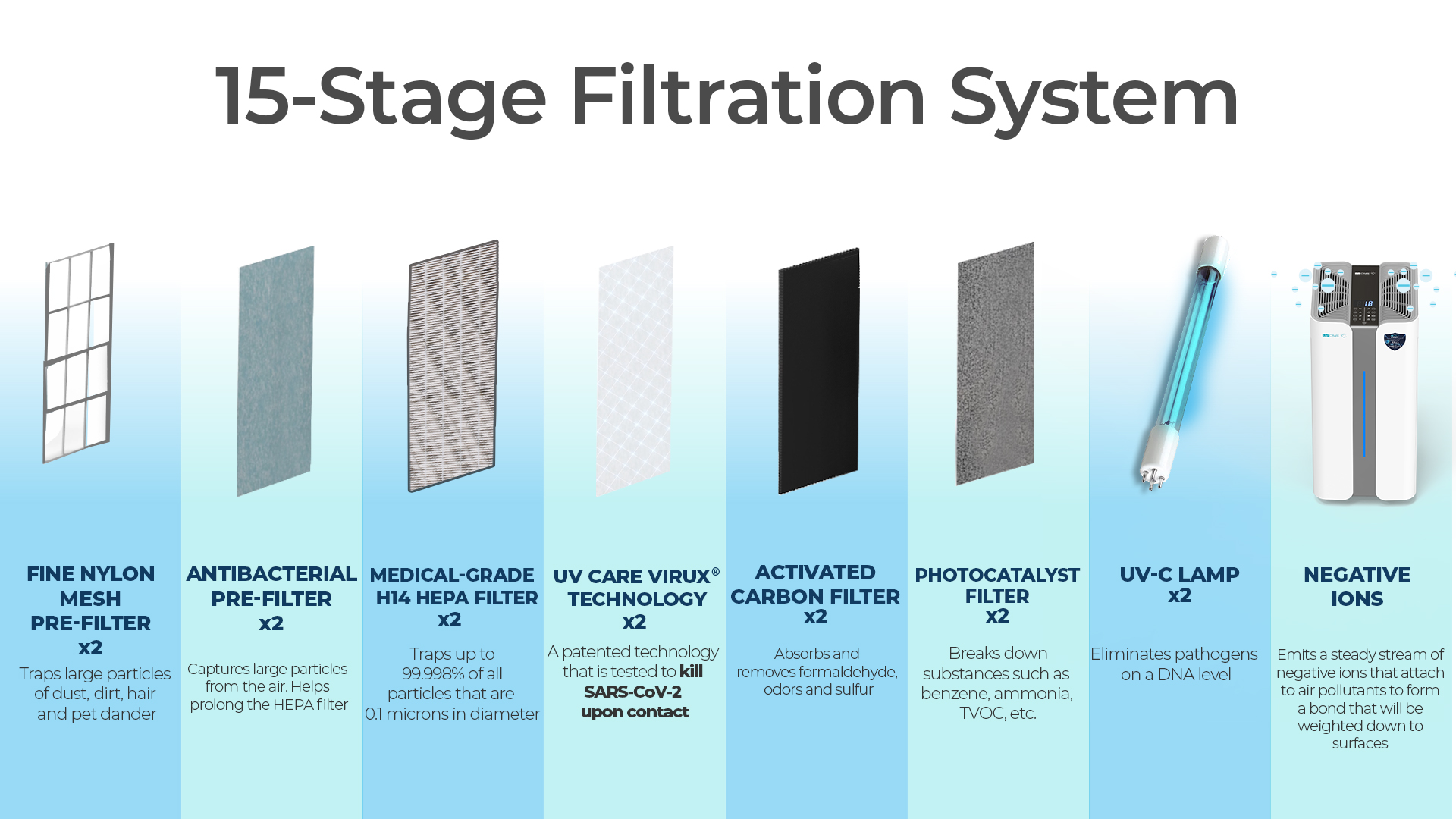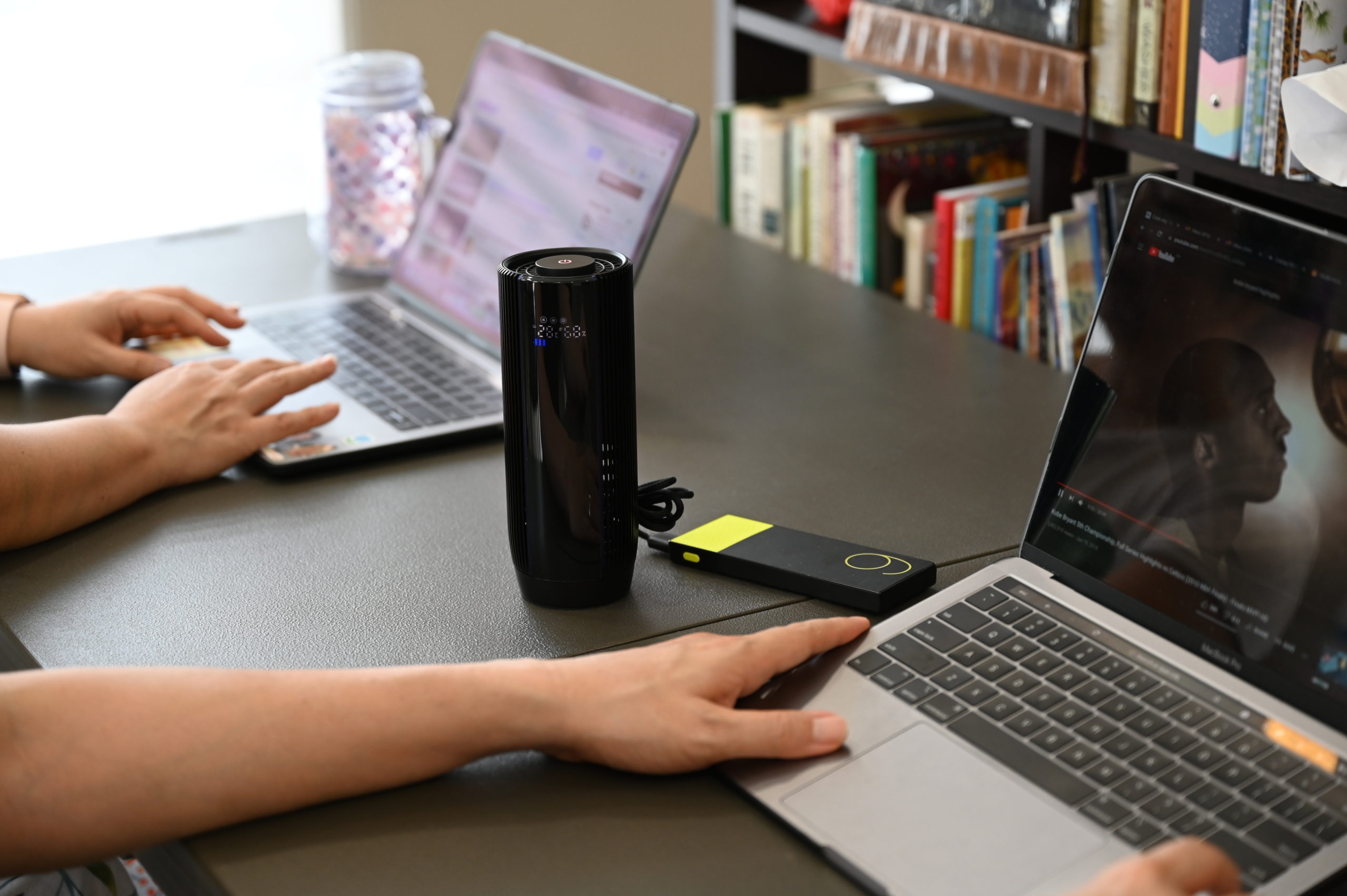Do air purifiers protect against viruses?
- How do air purifiers work
- How do HEPA filters and germicidal UV-C lamps work
- What to consider when buying an air purifier
Do air purifiers protect against viruses? It’s the question on everyone’s minds as their health becomes a number one priority — especially after the risks posed by the pandemic.
Viruses can spread whenever someone breathes in infectious particles, which often happens when a person is close to someone who’s ill. But, infection is also possible over longer distances and time, especially indoors.
The good news is that air purification devices can reduce the number of infectious particles indoors — including viruses. Even the Environmental Protection Agency (EPA), has said that air purification is a great way to keep you and others safe from viruses, especially when used in tandem with good safety and hygiene practices.
But how do air purifiers work and how effective are air purifiers at protecting against viruses? Read on.
How Do Air Purifiers Work?
The main function of air purifiers is to suck in air and let the air pass through different types of filters — such as a HEPA filter and an activated carbon. As the air moves through the filters, things like pet dander, dust, pollen, smoke, molds, bacteria, and viruses are captured, processed, and eliminated. As a result, the air that goes back into your space is much cleaner and safer to breathe.
Some air purifiers can also sterilize the air, combining two helpful functions into one unit. Sterilizing the air is important as there may be disease-causing pathogens floating in your spaces. High-quality devices effectively clean your air of harmful pollutants by using germicidal UV-C technology.
How Do HEPA Filters And Germicidal UV-C Lamps Work?

HEPA stands for “High-Efficiency Particulate Air,” which is a type of filter extremely efficient and effective in capturing fine air pollutants.
UV Care HEPA air filters are designed to meet a minimum efficiency of 99.998% in capturing pollutants as small as 0.1 microns. Wondering how small that is? For the sake of comparison, a strand of human hair is around 70 microns, dust particles are about 5 microns, and most virus particles, such as mycobacterium tuberculosis, are less than 0.5 microns.
You might immediately think that smaller particles, such as COVID-19 pathogens, can escape a HEPA filter — but that is not the case. HEPA filters are always examined in a “worst case” scenario, so they can actually capture even smaller particles than indicated. So, even elusive airborne viruses won’t stand a chance against a high-quality HEPA filter!
Germicidal UV-C lamps, on the other hand, work by destroying the DNA and RNA makeup of bacteria and viruses. Once deactivated, the pathogens will not be able to multiply nor infect you — and ultimately die off.
As long as the HEPA filters are in good condition, they can remove a significant amount of virus particles. Combine that with exposure to UV-C lamps, and you can effectively destroy all viruses, germs, and other harmful things floating around in your indoor spaces.
What To Consider When Buying An Air Purifier
To select an air purifier that can keep you safe indoors, you should always consider the size of the room you want to cover. Air purifiers are available in the market in different sizes as per their area of coverage.
Think about it — an air purifier for your small bedroom may not be enough when placed in a larger space with higher concentrations of indoor air pollutants like the kitchen or an office.
Most homeowners and businesses check the Clean Air Delivery Rate (CADR) before buying an air purifier. The CADR measures the effectiveness of an air purifier based on how many cubic meters per hour (m3/hr) of air that can be filtered. In general, the higher the CADR value, the faster the air purifier can clean indoor air.
Key Takeaway
If the question “do air purifiers protect against viruses?” has ever crossed your mind, the short answer is yes, they absolutely can! Modern air purifiers are equipped with features like HEPA filters, UV-C germicidal lamps, and high CADR, which can all play a role in reducing airborne pollutants, including viruses.
But, having an air purifier can only be part of the efforts in avoiding virus-related disease transmission — so you need to choose the best of the best to make the most out of this technology.
So if you’re looking for the best air purifiers for sale, check out UV Care’s products here. We can help you protect yourself and your loved ones indoors, using our medical-grade air purifiers fit for industrial, commercial, medical, and personal use! We take pride in making top-of-the-line air purifiers, equipped with H13 and H14 HEPA filters infused with our patented ViruX® Technology, providing more utility and efficiency than others in the market.

